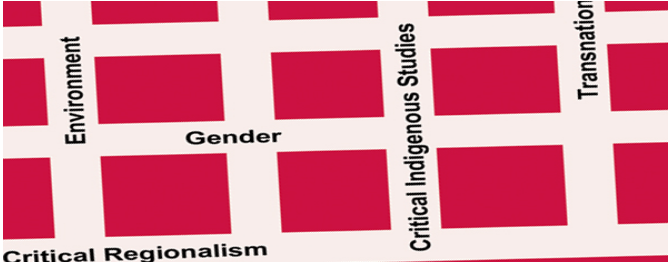
American Studies ETDs
Publication Date
7-11-2013
Abstract
This thesis explores Chicano involvement in and protest against the Vietnam war through a lens of cultural production, particularly song lyrics. It identifies a tension between the fact that Chicanos had proportionally even more to lose from the war than did Anglos, and the fact that Chicano-authored antiwar song is unknown while Anglo-authored protest song is inextricable from the era in the popular imaginary. The study finds that Chicano antiwar song was scarce, and less explicit in tone than that composed by Anglos, and argues that this distinction was caused by a combination of assimilationist pressures and the dictates of the corrido genre. However, Chicanos did create powerfully oppositional discourses using other musical genres or other creative forms. Those discourses challenged assimilationist rhetoric, forged connections between the war overseas and Chicano civil rights/ liberation struggles in the Southwest, and were anchored in sentiments of transnational affiliation with the people of Vietnam. Engaging critical regionalist methodology, the paper argues that in their transnational antiwar discourse and civil rights advocacy, Chicano artists and activists "twinned" Vietnam and the Southwest, constructing an "assemblage" of transnational affiliation comprised of skin color economic oppression colonial subjugation military/police violence, and ties to the land. Through invoking these parallels within the songs and other expressive forms scrutinized here, as well as within wider Chicano Movement discourse, these artists and activists were able to effectively articulate a poetics of resistance to both their own colonization and the colonization of the Vietnamese. The study has a broader aim of demanding a reconceptualization of the civil rights and antiwar movements this it does in two ways. First, it foregrounds Chicanos and their discourse of transnational affiliation with the Vietnamese within the antiwar movement, which is commonly perceived as an Anglo student movement. Second, it challenges the assumption that the Chicano Movement was modeled after the Black Civil Rights Movement, situating it instead within a decolonial framework.
Language
English
Keywords
Vietnam, Viet Nam, Vietnam war, war, Chicano Movement, el movimiento, cultural nationalism, Aztlán, Raza, civil rights, sixties, antiwar movement, protest movements, Chicano Moratorium, transnational affiliation, transnational, transnationalism, borderlands, assemblage, skin color, economic oppression, colonial subjugation, military/police violence, ties to the land, farmworker, campesino, colonialism, colonization, internal colony, decolonial, barrio, assimilation, heroic, carnales, carnalismo, corrido, corridos, celebratory, regulatory, therapeutic, violence, resistive, oppositional, poetics of resistance, genre, protest song, protest discourse, cultural production, activists, artists, veterans, folklore, critical regionalism, American Studies, Chicano Studies
Document Type
Thesis
Degree Name
American Studies
Level of Degree
Masters
Department Name
American Studies
First Committee Member (Chair)
Michael L. Trujillo
Second Committee Member
A. Gabriel Meléndez
Third Committee Member
Enrique Eufrasio Lamadrid
Recommended Citation
Lustgarten, Kirsten. "Carnales: Transnational Affiliation in Chicano Vietnam War Protest." (2013). https://digitalrepository.unm.edu/amst_etds/23
